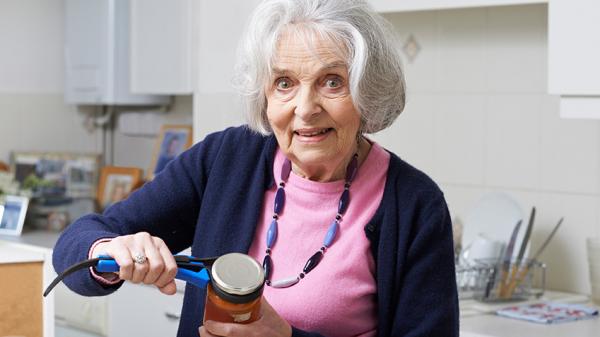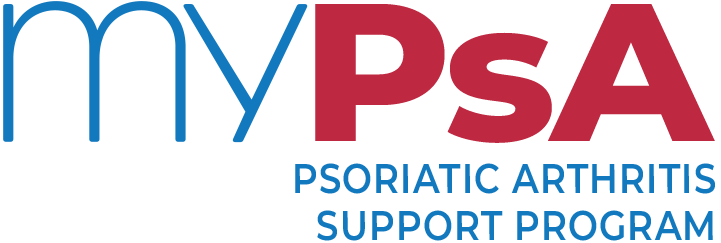
Planning for pregnancy
Thinking about starting a family? Becoming a parent is one of the most exciting and overwhelming times in most people’s lives. But if you or your partner has psoriatic arthritis (PsA) becoming a parent may take extra planning and patience.
Talk to your rheumatologist for advice at least six months before you start trying to conceive.
I have arthritis…is having a family possible?
Absolutely. It might require extra planning and patience, or not be quite as you pictured it, but becoming a parent is usually possible if you have arthritis. With proper planning and medical care, most people with arthritis can have safe, successful pregnancies.
Does having arthritis make it harder to fall pregnant?
If you or your partner has PsA it may take longer to conceive. Experts aren’t sure why this is the case. If you have any concerns about your fertility, speak to your GP or rheumatologist. They may refer you to a fertility specialist, such as an obstetrician, to improve your chances of getting pregnant.
Is there an increased risk of miscarriage or problems during pregnancy if I have arthritis?
There is no increased risk of miscarriage if you or your partner have arthritis. Most types of arthritis that are well controlled don’t increase the risk of complications during pregnancy or cause harm to the unborn baby.
However, poorly controlled arthritis can cause risks for both you and your unborn baby. It is important to work with your rheumatology team to find a management plan that can help get your arthritis under control before you conceive.
Can arthritis be passed on to my unborn baby?
The chance of your child having arthritis is low. If you are worried, talk to your rheumatologist for more information.
What to consider when planning to start a family?
If you or your partner has arthritis, it is important to see your rheumatologist well before you start trying to conceive. This is because you may need to stop taking some of your medicines possibly for several months, before trying for a baby. You should also be vigilant with contraception to prevent unplanned pregnancies until you are ready to conceive.
Your rheumatologist can give you advice about the safest combination of medicines to continue taking during conception and pregnancy.
Always talk to your rheumatologist before you stop taking any of your arthritis medications. Suddenly stopping your medications could make your arthritis worse, which can cause health problems for both you and your baby. Remember, there are many arthritis medications that can be safely used before and during pregnancy.
Questions for your healthcare team
Here are some things to discuss with your healthcare team, such as your rheumatologist, rheumatology nurse and GP before you start trying to conceive:
1. Are there any medications in my treatment plan that I should stop taking while I’m trying to fall pregnant or when I am pregnant? If yes:
- How long should I stop taking the medication(s) before I start trying for a baby?
- What are my other options to help manage my symptoms while I can’t take my usual medication?
2. Are there any medications for arthritis that are safe to continue while I’m trying for a baby, and during pregnancy?
3. Do I need any vaccinations before trying for a baby, or if my medications are changing?
4. Should I be taking any supplements before trying to fall pregnant?
5. When would be the best time for my partner and I to start trying for a baby?
6. What is the best type of contraception we should be using while we’re waiting to conceive?
7. Are there any tests I need before trying to conceive?
Your medical team should be able to work with you to come up with a treatment plan that protects the health of your unborn baby, while also keeping your arthritis under control. Be mindful that treatment plans may need to change, or you may need to try a range of different medications to find the right treatment for you during this period.
If you find it hard to talk openly and honestly with your doctor about your options or concerns, write down your questions before the appointment. You can also consider seeking a second opinion from another rheumatologist with a special interest in pregnancy.
What about men with arthritis?
If you are a man with arthritis and you are thinking about starting a family, your medications could also affect your fertility or your unborn baby. Most medications can still be taken but some may need to be stopped, possibly for several months, before trying for a baby. Some medications can reduce your sperm count, although this is usually reversed when you stop taking them.
What is the current evidence about medication safety for pregnancy and breastfeeding?
If you are planning a pregnancy it is vital to get an expert opinion from your rheumatologist about your medications as early as possible. Some arthritis medications are safe to continue before and during pregnancy. Other medications may need to be stopped as they may increase the risk of miscarriage or cause harm to a developing baby. Your rheumatologist will work with you to find the right arthritis management plan for both your health and the health of your unborn baby.
For more information about arthritis medicines and pregnancy, see our Arthritis and Pregnancy booklet.
Unplanned pregnancy
If you, or your partner, have fallen pregnant unexpectedly, call your rheumatologist or treating doctor immediately for advice.
What can I expect when expecting?
How your body will respond to pregnancy, and how you will feel during the next nine months, will be different for everyone. Every woman is unique and every woman’s pregnancy is also unique.
Some women sail through pregnancy and even find that that their arthritis symptoms go into remission (their symptoms improve or completely disappear) during pregnancy. But others can find pregnancy more challenging.
Pregnancy and arthritis remission
During pregnancy, your immune system goes through some changes to allow your baby to grow and develop.
For some women with arthritis, these changes to the immune system also bring a benefit of reducing the activity of their arthritis and psoriasis. It is thought that about half of women with PsA will find that their symptoms, such as pain, stiffness and flares, improve during pregnancy.
However, there are many women with arthritis who continue to have active disease during their pregnancy. You may even find that your symptoms worsen, or you have disease flares, particularly if you’ve had to stop or change medications.
Emotional health and pregnancy
Pregnancy can have a powerful effect on your mood, thoughts and emotions. Some emotional ‘ups and downs’ are a normal part of pregnancy. However, if are feeling constantly sad, worried, scared or nervous, thinking negative thoughts about yourself, or are finding it difficult to sleep, eat or do the usual activities in your life, seek support.
Talk to your GP or obstetrician about how you’re feeling, and they can suggest the best treatment options. You can also call the Perinatal Anxiety & Depression Australia (PANDA) National Helpline on 1300 726 306 for advice.
Labour and delivery
Talk to your rheumatologist, dermatologist, obstetrician and/or midwife about how your PsA could potentially impact on your delivery. Some things you may want to speak about, include:
- The positions you could use during labour and delivery. Particularly, if you have difficulties with your hips or lower back.
- Your ability to deliver your baby vaginally.
- The likelihood of requiring a caesarean section. Remember, while a caesarean section is more common in women with arthritis, many women without arthritis are also advised not to deliver their babies vaginally. A caesarean section may be the best option for a healthy baby.
- Your ability to have an epidural or spinal anaesthetic (pain relieving medications into the spine) during labour, especially if you have arthritis that affects your spine.
It is easy to get overwhelmed by the pressure to have a ‘normal’ vaginal birth. However the most important goal at the end of your pregnancy is for both you and your baby to be healthy. Try not to get too preoccupied by the idea of a perfect birth. Instead, surround yourself with healthcare professionals who you trust, and keep your focus on that all important end goal, a healthy, happy baby and mum.
Seeking support
Who can help?
Rheumatologists are doctors who specialise in diseases of the joints. Your doctor will need to refer you to a rheumatologist. They may recommend a rheumatologist, or you can contact the Australian Rheumatology Association to find a rheumatologist.
A rheumatology nurse, if available, can help you understand your treatments, provide support and refer you to other health professionals.
A physiotherapist (physio) can use various treatments to keep your joints as flexible, strong and pain-free as possible. They will also show you exercises and pain-relief techniques to use at home.
An occupational therapist (OT) can provide advice on how to care for your baby without putting strain on your joints, including suggesting equipment and aids that can help.
Talk to your GP if you are finding your feelings and emotions are getting in the way of enjoying your life. They can suggest ways to cope, recommend medications that can help or refer you to a psychologist who can help you work through your feelings. You may be eligible for a Mental Health Care Plan, via your GP, which will provide subsidised sessions. You can also see a psychologist without needing a referral.
Perinatal Anxiety and Depression Australia (PANDA) supports women, men and families across Australia affected by anxiety and depression during pregnancy and early parenthood.
beyondblue provides information and advice about depression, anxiety, available treatments and where to get help.
Child health nurses are a wealth of information and support as you learn to care for your new baby. Ask your obstetrician or midwife or contact your local community health centre to find out about services in your area.
Lactation consultants can help you with any problems you might have with breastfeeding. Find out if your local hospital or child health clinic provides this service, otherwise you can pay for a private consultation.
The Australian Breastfeeding Association has a helpline 1800 mum 2 mum (686 268) and online forum to help you with any breastfeeding concerns.
The Independent Living Centre has information about aids and devices that can help with day-to-day activities.
Useful resources
The web can be a useful source of information and support. However, not everyone who puts information on the web is a qualified health practitioner. Some organisations make unrealistic promises in order to sell their products. Treatment options and practices from overseas may also not be relevant or approved in Australia. Always check information from the web with a trusted member of your healthcare team.
The Australian Government’s HealthDirect is an excellent starting point for web searches, as every site that HealthDirect links to has been checked for quality and accuracy of information.
Australian resources
Arthritis Australia’s website for people living with inflammatory arthritis www.empowered.org.au has a detailed section on pregnancy, including hearing directly from women with arthritis about their journeys to motherhood.
The Australian Rheumatology Association has a detailed document that outlines the most current evidence about the safety of arthritis medications during pregnancy.










